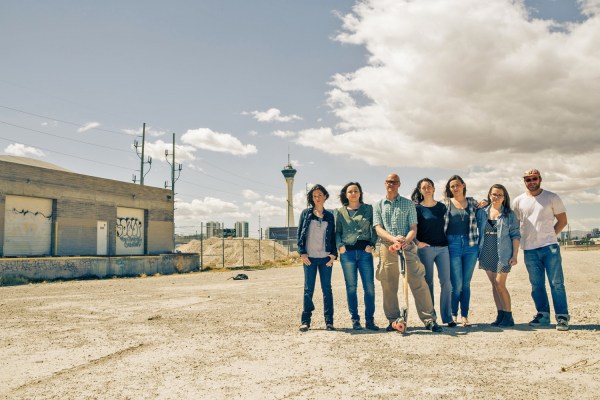Initiatives from behemoths like Apple and startups like Maker’s Row have been part of a wider effort to bring more manufacturing back to the U.S. after many years of it gradually, largely moving abroad. One of the latest developments on that front is a new venture in Las Vegas called Factorli.
Factorli is more than just a business that wants to encourage more domestic production. It hopes to be the go-to place for hardware startups in the U.S. to prototype and eventually make small runs of new products.
A startup in its own right, located in and around brownfield land in one of the older parts of town, near Downtown, Factorli today is announcing a Series A round of $10 million from the Vegas Tech Fund and Zappos entrepreneur/ Vegas business chamption Tony Hsieh to build out its concepts and the factory to make them into a manufacturing reality.
Jen McCabe, the founder and CEO of Factorli, tells me that she came to the idea of the startup as a by product of her “day job” as a part of the Vegas Tech Fund, leading investments into hardware startups. “For the past year, that’s what I’ve been doing, and in the process we’ve made 21 hardware investments,” she says.
In the process of doing so, though, she stumbled upon the same problem over and over:
“If you’re not GoPro or iRobot, how do you get these things built?” she asked. “There is base that just hasn’t been served by traditional manufacturing.”
McCabe said she figured out that there were five things that a hardware startup needed to do: they had to come up with a beautiful product; you had to be able to manufacture that product in a timely and cost-effective way, even if you have no manufacturing experience; you have to know about sales and distribution beyond Kickstarter and Indiegogo; you had to know about logistics; and you needed to know customer service.
At the heart of the challenge, though, is that she didn’t see that there were any business out there that were able to address different aspects of those five requirements in a way that was cost effective for startups and let them simply focus on creating.
That’s where Factorli is going to try to fit in. It will try to address all of those gaps that exist today and make it easier for hardware startups to get off the ground. Effectively, it wants to be a one-stop shop for the creation, production and distribution of new consumer-electronics goods.
“You want to build a product but you don’t want more than 25,000 of them? We couldn’t find a good solution for that,” she says. “You can have a great relationship but you don’t lose them when you have a shipping delay? That was another issue.” Additionally there were even challenges in the earlier stages of product conception such as helping to make prototypes.
There are a lot of companies that are championing the idea of manufacturing for hardware startups, with initiatives from the likes of PCH and Flextronics. HardTech Labs in San Diego, meanwhile, is looking to link up startups with factories South of the border.
McCabe says that Factorli will be taking influences from these, as well as a number of other concepts like burst manufacturing and cellular manufacturing; and thinking of the best way of blending the expertise of engineers, machinists, and machines.
“It’s not actually that easy to do,” she says of trying to offer end-to-end service around hardware. “Everyeryone we visitied said, ‘We’d love to start to talk to startups but it’s about accelerators for us,’ or they would just be polite but nothing would happen.”
But as cool and exciting as Factorli sounds, and as much as it will advance the conversation around the viability of hardware startups, there is a small catch. Factorli has yet to be fully built. Some of the ideas and how they will be implemented, in fact, are still in progress. “We’re working on the systems now,” she says.
McCabe says that the hope is to have everything ready, with customers in the building, in time for the big CES trade show next year, which will be in January 2015, but “we’re not showing people the details of the machinery just yet.”
As for who those customers might be, Vegas Tech Fund’s portfolio might be a good starting point. McCabe says that they have already ordered in a few Stir kinetic desks for the office. “We’d love to make the Stir here,” she said.
